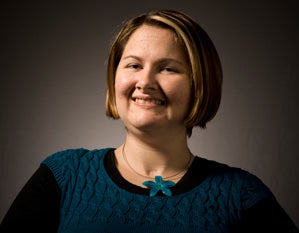
Quite often I have to go about things differently to people without an acquired brain injury. On the whole, the way people interact with me makes me feel cool and relaxed, and often makes potentially awkward situations feel positive, not a hassle. If I lived in a world where it was acceptable for people to discriminate against me, I can’t imagine ever wanting to leave the house - it makes me angry, actually enraged to imagine this.
I appreciate the Disability Discrimination Act, the challenge is we need to relay it into peoples everyday thinking, so it becomes more than words. Discrimination is something that comes from within a person, from their views and beliefs. Changing discrimination is a huge job – it’s not like we can just re-program people. To me it’s just natural, why would we discriminate against disability?
I do wonder though why we would think it is OK for me, at 17 years of age to live with elderly people in a nursing home? What common ground do I share with the elderly? I spent 2 years and 3 months of my teenage years in a nursing home. This is still happening to other young people today. We’ve come a long way in addressing disability discrimination, let’s not forget those young people with disability who have no choice but to live in nursing homes.